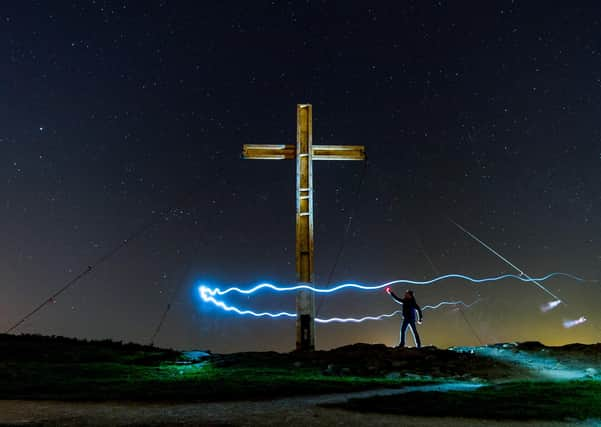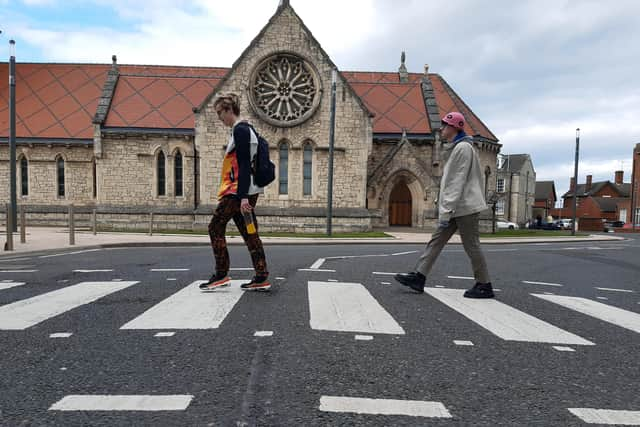Church needs to be beacon of light after Easter – Neil McNicholas


We’re emerging from what has been a long dark tunnel and every time so far that we have seen a light at the end of that tunnel it has proved to be on the front of an on-coming train!
If that’s what it proves to be yet again, let’s hope it’s a Pacer and that it breaks down in the middle of the tunnel. Better yet, let’s hope this time it really is the light that we’ve been looking for and hoping for.
Advertisement
Hide AdAdvertisement
Hide AdOn March 23, we commemorated the first anniversary of the UK going into lockdown in the face of increasing Covid-related infection rates.


At the time just 335 people had died as a result of contracting the virus – a number that was a source of considerable concern. A year later that figure had reached an almost unbelievable 126,000 which works out at an average of 345 a day – 10 more than the total number who had died when we first went into lockdown.
A year later we now have so much more working in our favour including an outstanding vaccination programme and the fact that the requirements of social distancing, hand-washing and face mask wearing have become second-nature to us.
There are now, certainly, considerable grounds for hope providing we don’t become complacent and let our guard down. And so here’s a thought: by your diligence how many lives have you helped to save today?
Advertisement
Hide AdAdvertisement
Hide AdCharles Dickens’ A Christmas Carol opens with the statement: “Marley was dead: to begin with. There is no doubt whatever about that. Old Marley was as dead as a doornail… This must be distinctly understood, or nothing wonderful can come of the story I am going to relate.”
When he says “Marley was dead: to begin with” what he means is that “to begin with” it is important for the reader to understand that Marley was dead, and that it was only in his ghostly form that Marley, with the help of the three Christmas ghosts, was able to bring about a total conversion in Scrooge’s life by frightening him to death – or, we might say, by frightening him with death.
The story is in many ways a parable of the fact that no situation is beyond hope, and no person beyond redemption.
Let me just repeat those opening lines that Dickens wrote, but with one or two slight changes to the wording: “Jesus was dead: to begin with.
Advertisement
Hide AdAdvertisement
Hide Ad“There was no doubt whatsoever about that. Jesus was dead as a doornail. This must be distinctly understood, or nothing wonderful can come from the events we celebrate at Easter.”
For Christians, what those events are is a message of tremendous hope and encouragement.
When things apparently couldn’t get any worse, it actually turned out that they could only get better.
Jesus had died on the cross and the hopes of his followers seemed to have been for nothing, but suddenly there was light at the end of the tunnel – or rather at the entrance to the tomb - when Jesus rose from the dead in fulfilment of everything that he said would take place. By his death on the cross he has saved us, and by his resurrection from the dead he offers us eternal life.
Advertisement
Hide AdAdvertisement
Hide AdThe Church just at the moment has a lot of hard work ahead of it.
The number of people who are regularly church-going has been falling noticeably in recent years, and the fact that our churches had to close for much of the past year hasn’t helped the situation, nor the fact that numbers attending Masses and services have to be restricted anyway for social distancing reasons.
People are being understandably slow to return to church not wanting to take any unnecessary risks.
All we priests and ministers can do is “hang out our shingle” (as they say on the other side of the pond) by simply doing what it is we do and hope that little by little people will return as and when they can, though even then we are having to “work” under considerable constraints in terms of what we are allowed to do and how we are allowed to do it so as not to create situations of risk.
Advertisement
Hide AdAdvertisement
Hide AdIn these difficult times the Church is an important beacon of hope in the community, and as people emerge from the tunnel of lockdown and the threat of Covid we also need to be a beacon of light – the light of Christ.
Neil McNicholas is a parish priest in Yarm.
Support The Yorkshire Post and become a subscriber today. Your subscription will help us to continue to bring quality news to the people of Yorkshire. In return, you’ll see fewer ads on site, get free access to our app and receive exclusive members-only offers. Click here to subscribe.
Comment Guidelines
National World encourages reader discussion on our stories. User feedback, insights and back-and-forth exchanges add a rich layer of context to reporting. Please review our Community Guidelines before commenting.